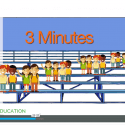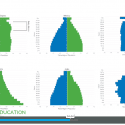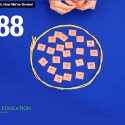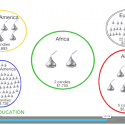
This quick and visual demonstration uses water and measuring cups to model how population increases when the...

Students simulate several generations of a family’s growth, comparing a two-child and three-child average family size.

Students construct and interpret population pyramids for six different countries in this lesson. By analyzing age and...

This engaging population growth simulation helps students experience the changing pace of Earth’s population growth over the...

In this fun, game-like classroom activity, students take on the role of predatory animals competing for limited...

This engaging population growth activity helps students understand long-term human population trends. Through an interactive simulation of...

This engaging, hands-on STEM and earth science lesson introduces students to the connection between natural resources and...

Students identify the ten most important factors for a sustainable community and create measurable indicators to evaluate...

In this engaging global studies activity, students role-play as residents of five major world regions to compare...
PopEd Impact
campuses
"The activities not only bring out important content, but they also provide real-world context for environmental, population and sustainability issues. They engage participants in very thought-provoking and critical-thinking discussions.”
Helen de la Maza, Environmental Educator, Irvine, CA

